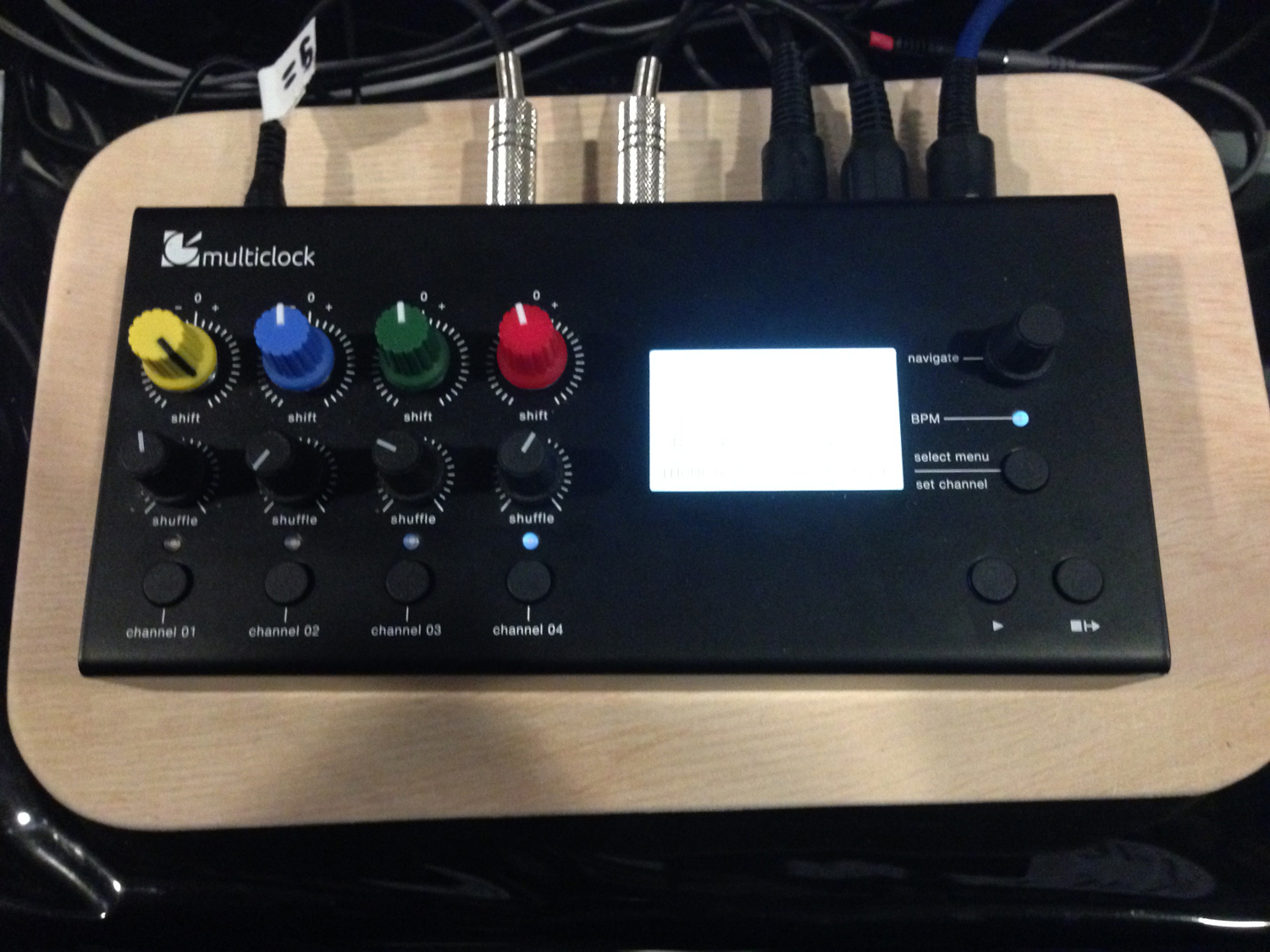

- #SYNC ABLETON FROM MPC MULTICLOCK UPDATE#
- #SYNC ABLETON FROM MPC MULTICLOCK DRIVER#
- #SYNC ABLETON FROM MPC MULTICLOCK CODE#
JACK doesn’t pick up the new device, though on my Linux desktop I can do USB audio hot-swapping without restarting jackd. **** List of PLAYBACK Hardware Devices ****Ĭard 0: sndrpimonome, device 0: monome cs4270 cs4270-hifi-0 Ĭard 1: Pro, device 0: USB Audio Ĭard 1: Pro, device 1: USB Audio ġ92.168.1.191 ~/dust/code/sines $ jack_lsp I plugged in an M-Audio fast track and I get this. Would be possible with the current hardware though? monome/norns/blob/main/lua/core/hid_a - hid event listing this table effectively defines the keycode mapping by naming each keycode with a character: In norns, we lifted the keycode to character mapping from evtest/kernel headers, and ported it to lua. (when you set locale at installation time, you are probably setting localectl for console / terminal input on OS’s like debian which use systemd.)
#SYNC ABLETON FROM MPC MULTICLOCK CODE#
(this lowest-level mapping can itself be customized, but that’s not typically done for localization - more for things like like swapping CTL and ALT.) userspace maps keycodes to characters when appropriate - in localectl for virtual terminals, in xorg for windowed apps, or just in application code for things like evtest which use the USB data directly instead of requiring a terminal or window environment. the kernel doesn’t care about keyboard locale. I had the nerdiest celebration when all my gear finally synced up.Is there something in the Linux kernel that can be leveraged for this? I doubt this info will make sense to anyone, as it's a double negative trick to make my MIDI CV conversion have two different latencies depending whether Ableton or the BSP is sending the MIDI, but in the slender chance it helps somebody I'm posting it.
#SYNC ABLETON FROM MPC MULTICLOCK DRIVER#
Please note: this is not the intended purpose of the Driver Error compensation parameter, and I am using it as a "hack" to offset against the External Hardware out +15 ms. By using the Drive Error Compensation (which is intended for a whole other purpose) I managed to trick Live into offsetting my midi output, offsetting the clock against that, and got myself all perfectly in time.ĭriver Error Compensation : -15 millisecondsīy doing this I solved my two way issue. I needed a latency offset which only affected the CV conversion of the MIDI in one of the cases. Preferences ->Audio Card -> Driver Error Compensation (manual ) Preferences : MIDI-> Arturia ->clock out latency offset (ms) The parameters available are:ĭevice: External Instrument and Effect - Hardware Latency (ms) By following the clues I figured out a way to get my MIDI in time. I had to sit down with a big piece of paper and play with the parameters available on a grid, and test each by rending resampled outputs to the clip view and seeing if they were on the grid. I could have one direction or the other in time. I could have Ableton play drum patterns and send midi to the CV converter and all would be in time, but if I then had the BSP play CV, or Play drums then there was latency.

All of that needs to sync with the audio streams of Live via automatic plugin delay calculations. So there are multiple directions of data each with different latency requirements BSP -> Live, Live-MIDI>BSP->analogues and lastly the clocked BSP->analogues. The BSPalso programming drum patterns TO Live Drum racks(!) and the BSP is receiving a master clock from Ableton, AND the BSP is also sending out sequences as CV directly out to analogues. I have a BeastepPro doing midi to CV conversion from Live.
#SYNC ABLETON FROM MPC MULTICLOCK UPDATE#
That means they might break in future if a software update alters the functionality. This may / may not be relevant to you, but I'm providing it in the slim chance it helps you or someone in future. Hi, I've run into similar problems although with a different setup. The part that is damning is that the gap between audio and MIDI is constant, it doesn't jump around, which presumably means it should be relatively easy to correct.Īny suggestions on how i could fix this? thank you. The Multiclock has helped dramatically to sync Ableton and drum machines (it does that task very well), but the timing of the synths is still not tight enough for snappy percussive synth sounds to sound in time with the rest. The monitoring button in the Ableton audio channel where the output is recorded is accordingly set to 'Off'. Synths and drum machines are monitored externally through a mixer. My setup: Ableton 10 on OSX, I use the external instrument plugin to send MIDI notes via USB to an E-rm Multiclock interface, which feeds a korg minilogue and an arturia microbrute and a couple of drum machines. I use Ableton to send MIDI notes to a few external synths and the issue i run into often is that the timing of MIDI notes often does not match that of the recorded audio of the synth, generally the audio is a little *ahead* of the MIDI notes.


 0 kommentar(er)
0 kommentar(er)
